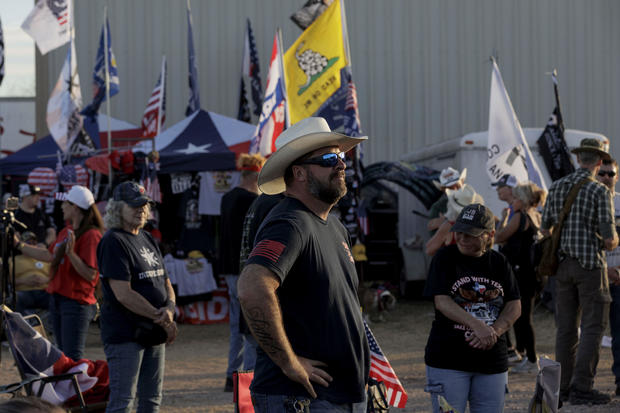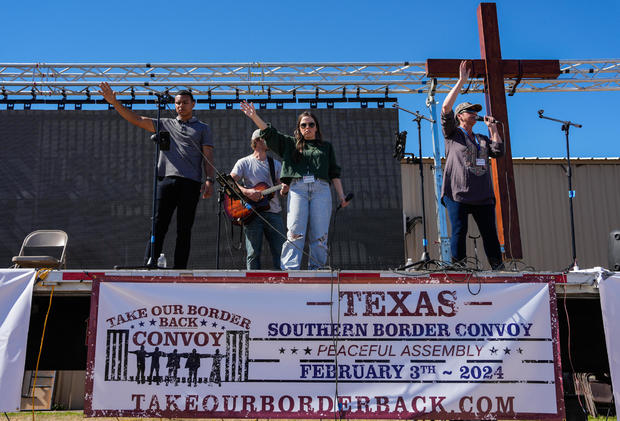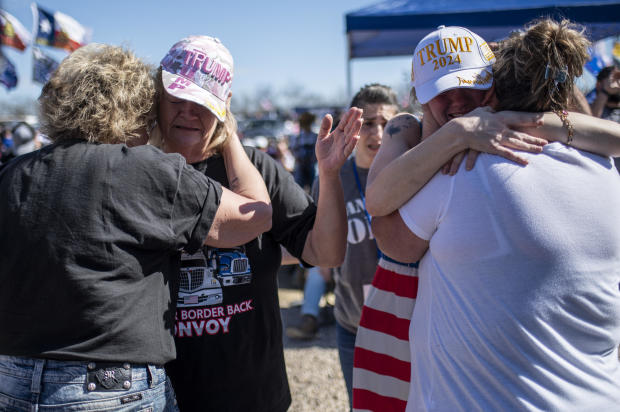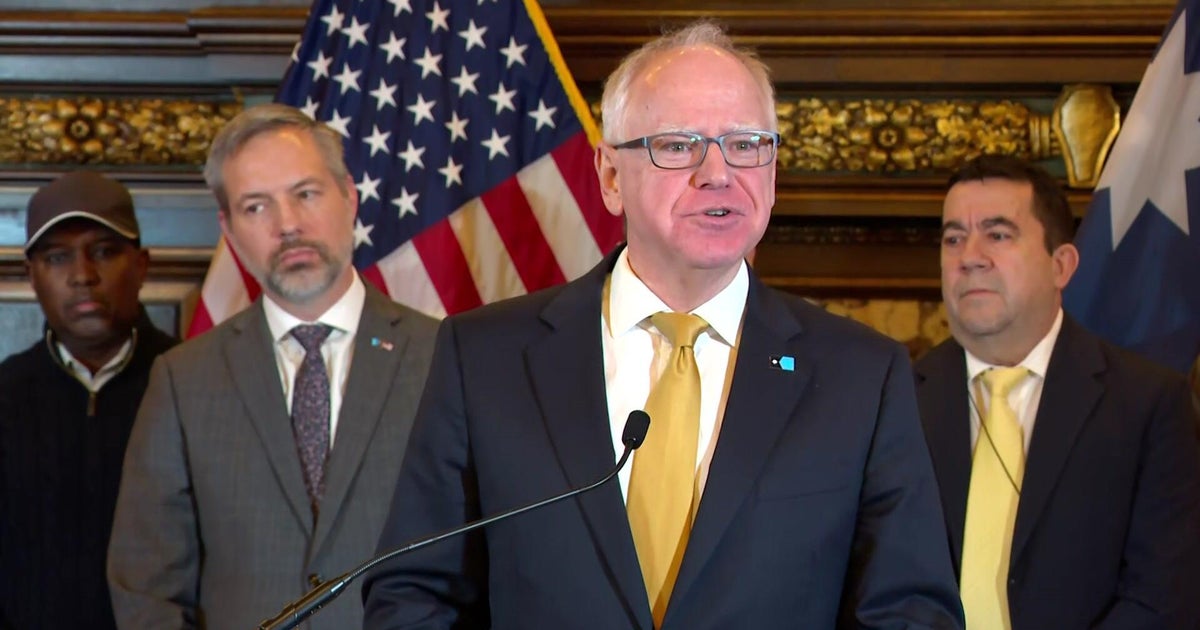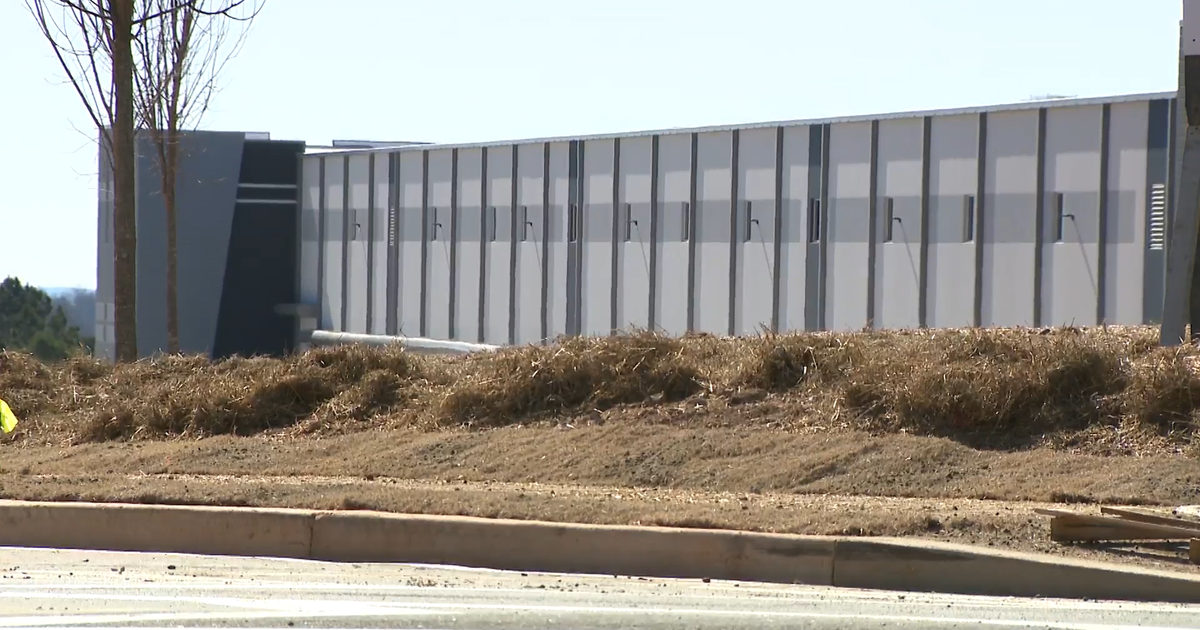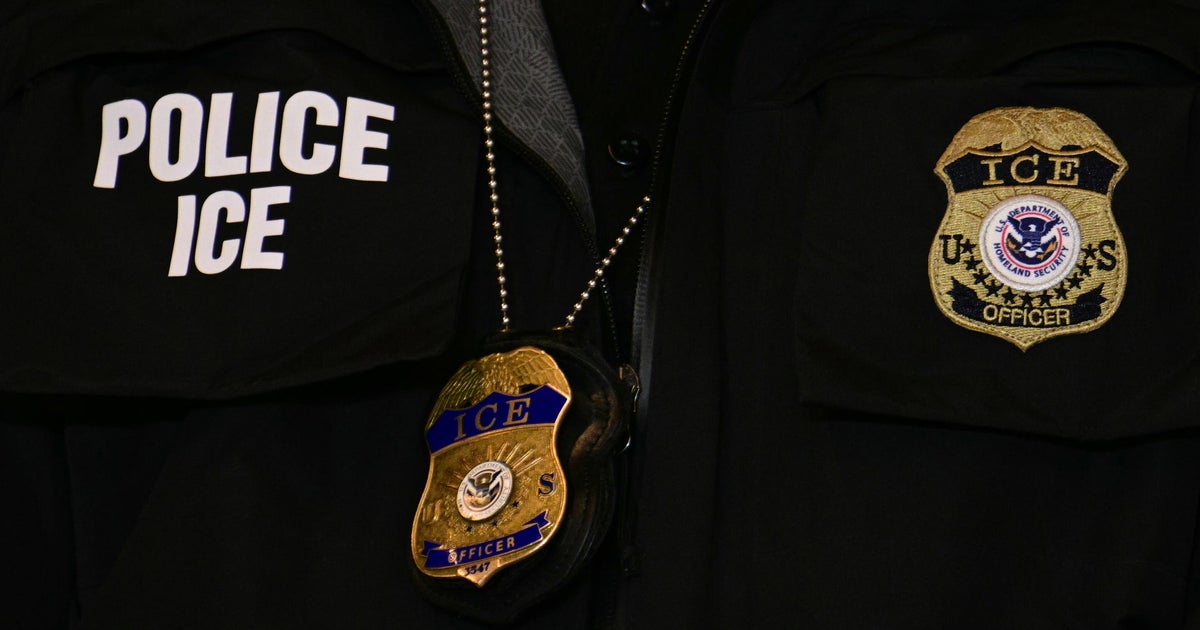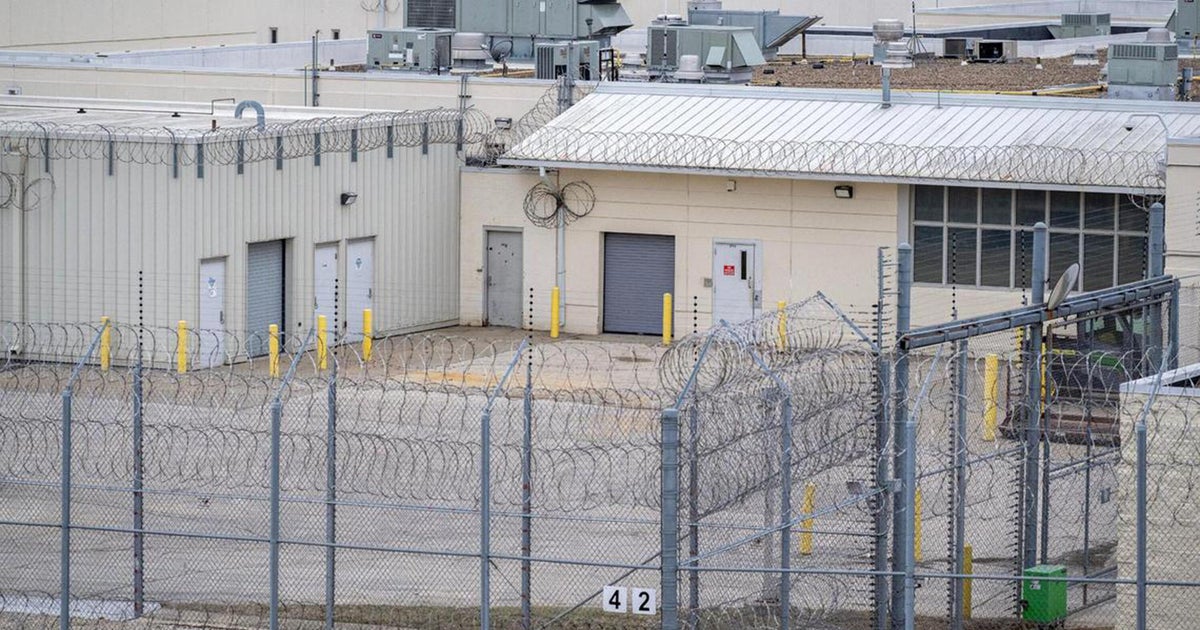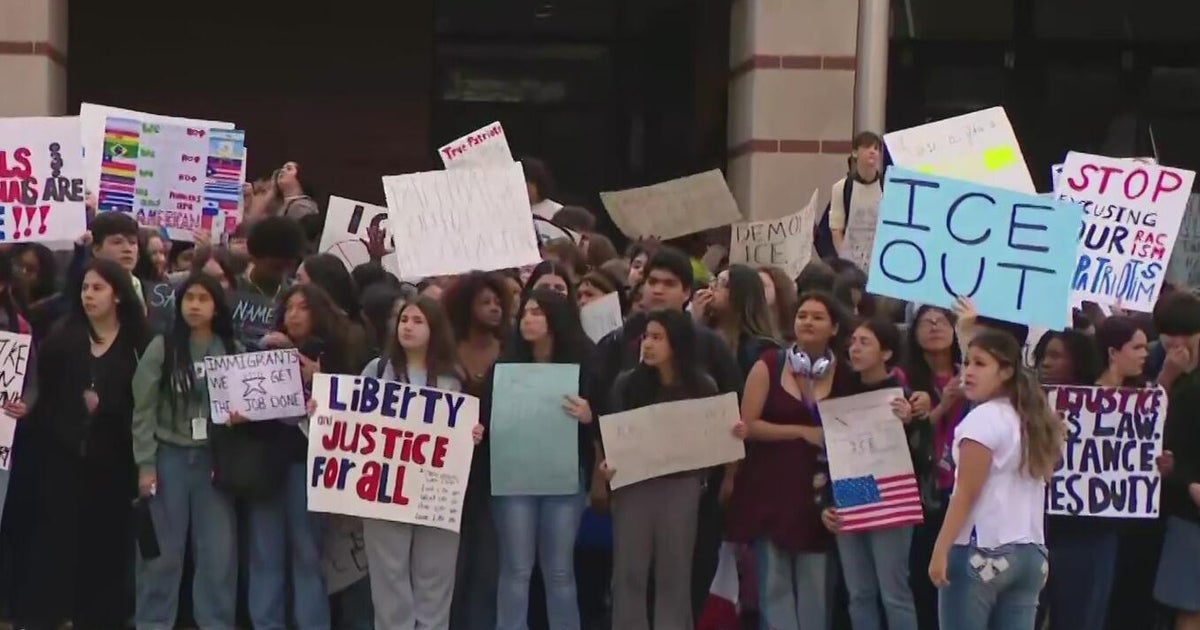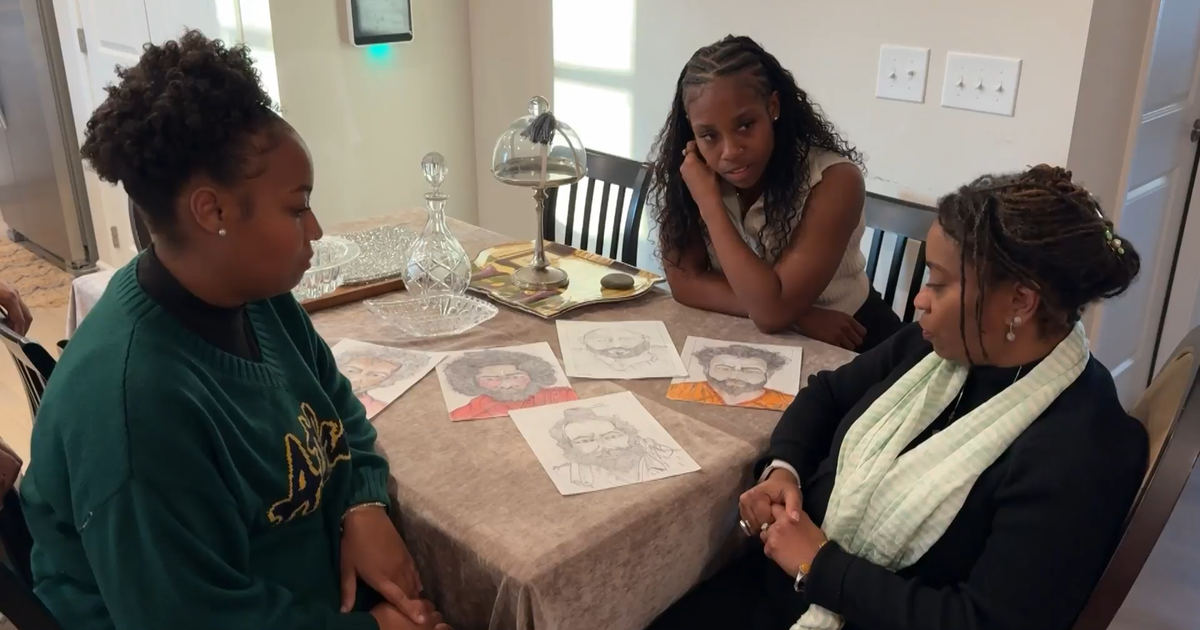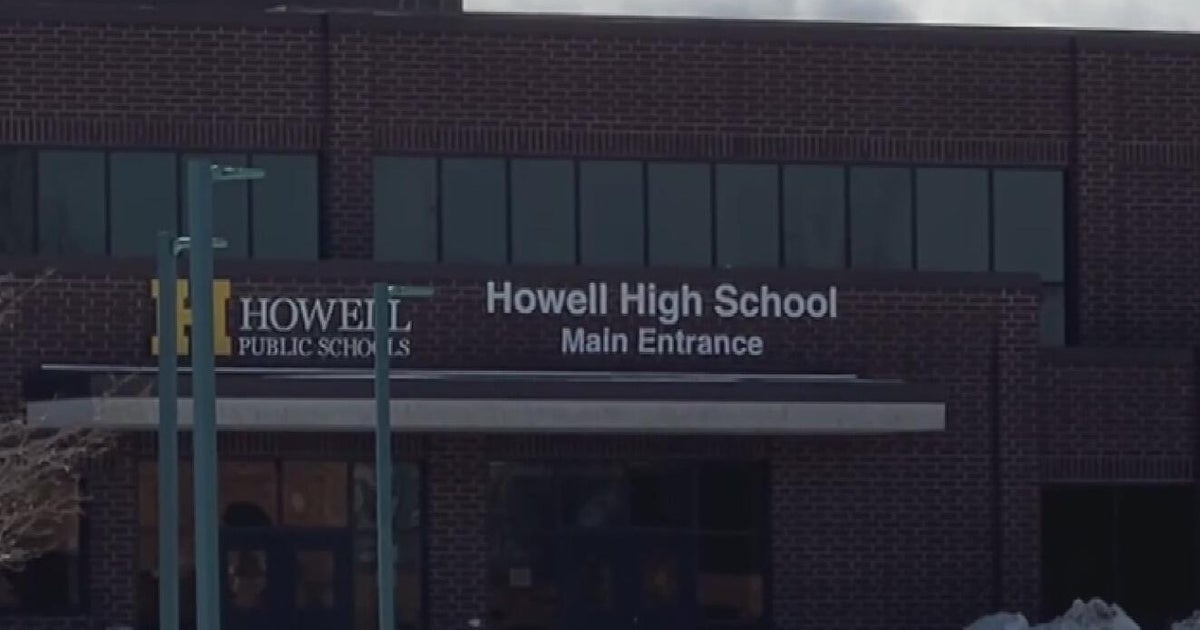At Texas border rally, fresh signs the Jan. 6 prosecutions left some participants unbowed
Quemado, Texas – Three years after the Jan. 6 attack on the U.S. Capitol, some of the same defendants who were arrested and convicted for their role in the violent insurrection were embraced by an emboldened fringe movement at the nation's southern border.
The Take Our Border Back rally last weekend brought anti-immigration hardliners, MAGA conservatives, and other fringe elements to protest the Biden administration's immigration policies, in what the website said was a "call on our government to take action… and secure our southern border." It was also, to a certain extent, a rebirth for some Jan 6 defendants who took the stage to galvanize supporters.
In speeches and private conversations, some of the Jan. 6 defendants told CBS News the border rally emboldened them to resume in-person protests and rallies.
"A lot of people were fearful to come to this rally because of Jan. 6," said 42-year-old Christina Holbrook, who traveled from Cincinnati to attend the rally. "That's what the government wants us to do — be afraid. But now we know we can raise our voices."
In her view, the 1,300 Jan. 6 prosecutions may briefly have served as a deterrent, but now they've become a powerful organizing tool.
"It's the same idea as politically prosecuting Donald Trump. It absolutely has backfired," she said. "But the government's prosecutions have actually brought people together."
The plan for deterrence
The Jan. 6 insurrection turned a group of right-leaning supporters of former President Trump from online agitators into a violent mob intent on disrupting the congressional process to affirm the 2020 election results.
Four rioters died in the assault on the U.S. Capitol — three who suffered medical emergencies and one, Ashli Babbitt, who was shot by a Capitol Police officer as she attempted to force her way toward where members of Congress were sheltering in place. Hours after the riot, Capitol Police Officer Brian Sicknick, who came under attack with chemical spray, died of a stroke. Four more officers, Howard Liebengood, Jeffrey Smith, Kyle DeFreytag, and Gunther Hashida, committed suicide in the days and weeks afterwards.
After the assault, federal prosecutors mounted one of the largest and most complex investigations in the nation's history, leading to 1,313 arrests and 900 convictions and guilty pleas. At least 124 defendants have been charged with causing serious injuries to officers. The Justice Department found that approximately 140 police officers were assaulted on Jan. 6, including 80 Capitol Police officers and 60 Metropolitan Police officers.
"The best way to prevent another Jan. 6 is to ensure accountability for Jan. 6," Democratic Rep. Bennie Thompson of Mississippi said at the conclusion of a House select committee investigation that recommended Trump be criminally prosecuted. "Accountability at all levels."
Judges overseeing Jan. 6-related cases at times said openly they expected prison time to serve as a deterrent against future insurrections.
"It has to be made clear that trying to violently overthrow the government, trying to stop the peaceful transition of power and assaulting law enforcement officers in that effort is going to be met with absolutely certain punishment," said U.S. District Judge Tanya Chutkan, during a Jan. 6 sentencing hearing in 2021.
Earlier this year, federal judge Ana Reyes admonished Jan. 6 defendant Karol Chwiesiuk, a former Chicago police officer, and his sister Agnieszka, for their actions that day.
"What happened on Jan. 6 was — I have no words for that I can adequately convey how alarming it was and how destructive it was and how un-American it was. And every single person who rioted at the Capitol and who invaded the Capitol was part of an insurrection, end stop," Judge Reyes told the defendants at their sentencing. "You might not have thought that was what you were doing going in, but that is what it was."
Hailed as heroes
But in Texas last weekend, an emboldened posture that has been percolating in right-wing online forums burst into public view.
Nearly 400 people showed up to Saturday's rally to hear people like Ryan Zink speak. On Jan. 6, Zink, according to the D.C. U.S. attorney's office, shot video of the rioting and proclaimed in one clip, "We knocked down the gates! We're storming the Capitol! You can't stop us!"
Zink was found guilty on both felony and misdemeanor charges for his actions that day. Now, he's running for a seat in Congress, and he took to the stage to give a campaign speech.
"I'm just a country boy who had his entire life kicked out from underneath him," he said. Zink said he nearly died during the weeks he spent at the D.C. jail.
Almost two years to the date after he was arrested in Texas, Zink described his experience as a Jan. 6 defendant to the crowd.
"If you get me to Washington, D.C., I will do everything I can to stop what happened to me from happening to you and your children," he said, a call to action that was met with overwhelming applause.
Treniss Evans, who pleaded guilty to illegally entering the Capitol complex on Jan. 6 and served 20 days behind bars, spoke at One Shot Distillery and Brewery in Dripping Springs two days before the rally.
"We stand here at a moment where people are actually starting to gather again," said Evans, who is both a defendant himself and does legal advocacy for other Jan. 6ers through his organization, Condemned USA.
Overcoming fears of gathering IRL
Last week's rally provided early evidence that efforts to try and discourage anti-government activists from leaving their computer keyboards and rallying in person may have fallen short.
In the days leading up to the convoy, organizing channels on Telegram were riddled with rumors and paranoia suggesting the event was going to lead to Jan. 6 -style arrests. Users went back and forth about whether or not organizing in-person was worth the risk.
"I heard on the news that this was actually being organized by the Feds to entrap us," said one user. Another countered, "Stop letting them scare you out of protesting using January 6th. That's the goal and it's working."
But the rally revealed that the misinformation and fervor behind the Jan. 6 insurrection may be more durable than federal authorities had hoped. In a speech, Evans appeared newly emboldened with familiar election propaganda.
"They are going to steal your election again. We all know what's coming," he said.
To Evans and others, the Take Our Border Back rally opened a new chapter for a "patriot" movement ready to organize in person again.
"It absolutely shows proof of concept," Holbrook said, adding that attendees are already talking about the next gathering. "What can we do now? What comes next?"

